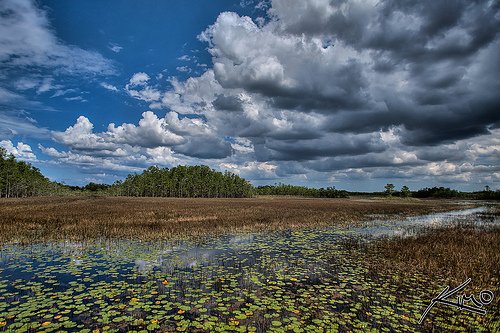
An increase in methane emissions into the atmosphere since 2006 may have been caused by wetland expansion and fossil fuel emissions, a study recently published on Nature Geoscience said.
A team of scientists (among them the CMCC researchers Simona Castaldi and Monia Santini from IAFENT Division) reconstructed decadal budgets for methane sources and sinks between 1980 and 2010, using a combination of atmospheric measurements and results from chemical transport models, ecosystem models, climate chemistry models and inventories of anthropogenic emissions.
Methane is an important greenhouse gas, responsible for about 20% of the warming induced by long-lived greenhouse gases since pre-industrial times. Although most sources and sinks of methane have been identified, their relative contributions to atmospheric methane levels are still highly uncertain. As such, the factors responsible for the observed stabilization of atmospheric methane levels in the early 2000s, and the renewed rise after 2006, remain unclear.
Results now suggests that a rise in natural wetland emissions and fossil fuel emissions probably accounts for the renewed increase in global methane levels after 2006, although the relative contribution of these two sources remains uncertain.
Read the integral version of the paper:
Stefanie Kirschke, Philippe Bousquet, Philippe Ciais, Marielle Saunois, Josep G. Canadell, Edward J. Dlugokencky, Peter Bergamaschi, et al.
Three decades of global methane sources and sinks
2013, Nature Geoscience doi:10.1038/ngeo1955


